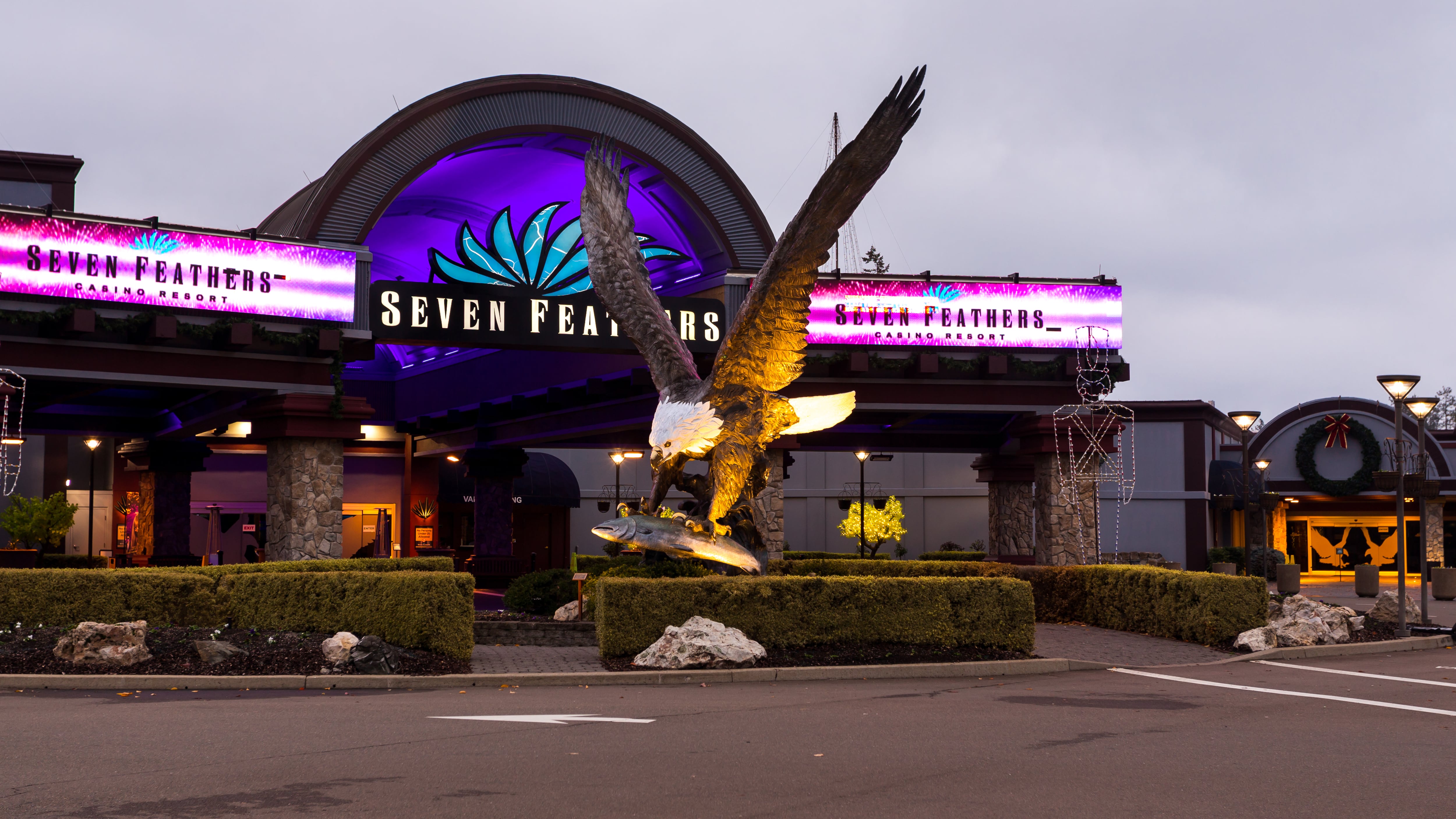Gov. Tina Kotek gave unambiguous guidance today to Oregon’s nine recognized Indigenous tribes and the Oregon Lottery about where she stands on gambling.
In response to questions her office has received and to pending proposals that would add two tribal casinos, Kotek simply said no.
“Throughout my legislative career, during my campaign for this office, and since the start of my administration, I have been clear that I do not favor an expansion of gaming,” Kotek wrote in a letter to leaders of the nine tribes and state and federal officials, including interim Oregon Lottery director Mike Wells.
“This applies to tribes and the state. Therefore, my policy on Tribal gaming facilities maintains the status quo from past governors, i.e., good faith bargaining between sovereign tribes and the state on one gaming facility per tribe on reservation land.”
Kotek’s statement comes as the Coquille Tribe continues its quest to open a casino in Medford and the Siletz Tribe pursues a casino in Salem. It also follows a long period of uncertainty during which in addition to potential tribal expansion, the Oregon Lottery moved aggressively into mobile sports betting and the Oregon Racing Commission tried unsuccessfully to expand betting on what’s called “historical horse racing” at Grants Pass Downs.
Former Gov. Kate Brown and the Legislature found themselves buffeted by competing proposals and, as a result, legislative leadership convened 2022 interim and 2023 regular session committees to consider state gambling policy.
All of which occurred as the Cowlitz Tribe’s Ilani Casino in Clark County, Wash., which Oregon tribes opposed for years, has found extraordinary success since opening in 2017, as The Oregonian has reported.
Kotek is hoping to head off further skirmishing over gaming expansion in Oregon.
“I wanted to provide this clarification of my tribal gaming policy so that Tribes, the federal government, and local entities know where I stand,” she wrote. “This helps all of us avoid confusion, use of resources, and advocacy for and against changing my stance in favor of one gaming facility per tribe on reservation land.”
Updated with a response from Coquille tribal Chair Brenda Meade and U.S. Rep. Cliff Bentz (R-Ore.):
Coquille tribal chair Brenda Meade blasted Kotek’s opposition to the Coquille’s Medford project this afternoon, asserting that the governor is simply protecting the Oregon Lottery, the state’s second-largest source of revenue.
“Oregon’s governors consistently say they want to prevent proliferation of casinos, but the state is the biggest casino promoter in Oregon,” Meade said. “The Oregon Lottery’s growing video gaming empire is everywhere—grocery stores, bowling alleys, restaurants, lottery parlors and now even on the internet.”
U.S. Rep. Cliff Bentz (R-Ore), whose district includes Medford, also weighed in today, expressing opposition to the Coquille’s request that federal officials expedite approval of the Coquille project.
“While I absolutely support economic development for all of Oregon’s federally recognized tribes, it must be pursued through appropriate channels,” Bentz wrote to the federal Department of the Interior, which oversees tribal casino development. “The appropriate avenue for this application is a two-part determination, through which local governments and the community in Southern Oregon will have a voice in the decision-making process.”
Meade’s view is that outsiders should stay out of her tribe’s business. “Opposing our economic development opportunities amounts to an attack on our ability to provide health care, housing, education, and elder assistance to our people,” she said.

